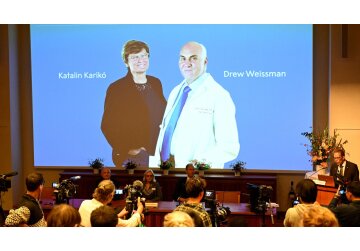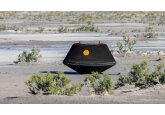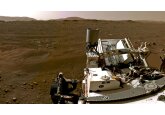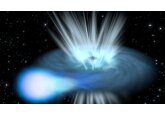
COVID vaccine scientists win Nobel Prize in medicine
The accolade, among the most prestigious in the scientific world, went to Katalin Kariko, from Hungary, and Drew Weissman, from the United States.
The Nobel Prize in medicine has been awarded to two scientists for their research which led to the development of effective mRNA vaccines against COVID-19.
The accolade, among the most prestigious in the scientific world, went to Katalin Kariko, from Hungary, and Drew Weissman, from the United States.
"Through their groundbreaking findings, which have fundamentally changed our understanding of how mRNA interacts with our immune system, the laureates contributed to the unprecedented rate of vaccine development during one of the greatest threats to human health in modern times," the panel that awarded the prize said.
Both COVID-19 vaccines Pfizer/BioNTech and Moderna use something called messenger RNA (mRNA) to send genetic instructions to the body's cells to recognise and destroy a particular part of the coronavirus called the spike protein.
When the body develops an immune response to this spike protein it is then able to fight off the coronavirus without having ever been exposed to the virus itself.
Ms Kariko is a professor at Sagan's University in Hungary and an adjunct professor at the University of Pennsylvania.
She was senior vice-president and head of RNA protein replacement at BioNTech until 2022 and has since acted as an adviser to the German firm.
Mr Weismann performed his prize-winning research with Ms Kariko at the University of Pennsylvania.
The two have said they met in 1998 while waiting for rationed photocopying machine time. The ensuing chat piqued immunologist Mr Weissman's interest in Ms Kariko's RNA work.
Advertisement
Thomas Perlmann, secretary of the Nobel Assembly, announced the prize and said both scientists were "overwhelmed" by the news when he contacted them.
"This year's Nobel Prize recognises their basic science discovery that fundamentally changed our understanding of how mRNA interacts with the immune system, and had a major impact on society during the recent pandemic," said Rickard Sandberg, a member of the Nobel Assembly at Karolinska Institute.
"Together they have saved millions of lives, prevented severe COVID-19, reduced the overall disease burden and enabled societies to open up again."
Dr Paul Hunter, a professor of medicine at the University of East Anglia, described the mRNA vaccines as a "game changer" in helping to shut down the coronavirus pandemic, crediting the jabs with saving millions of lives.
"If it hadn't been for the mRNA technology, COVID would have been much worse," he said.
"Vaccines generally were the turning point in slowing down COVID and the mRNA vaccines were just so much better than all the others.
"We would likely only now be coming out of the depths of COVID without the mRNA vaccines," he added.
Monday's announcement in Stockholm, Sweden, kicks off this year's awards with the remaining five to be unveiled in the coming days.
The prizes, first handed out in 1901, were created by Swedish dynamite inventor and wealthy businessman Alfred Nobel, and are awarded for achievements in physics, chemistry, literature and peace, and in later years also for economics.
They carry a cash award of 11 million Swedish kronor (£820,000). The money comes from a bequest left by the prize's creator, who died in 1896.
news.sky.com







